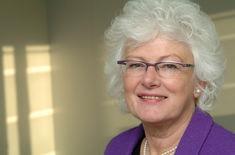
Member states in the EU have taken a huge step to ensuring a healthy future for their citizens after signing up to the pan-European free fruit and vegetables scheme and increasing the budget for the project.
It was announced on Tuesday that 24 of the 27 EU countries will participate in the European School Fruit Scheme, which will see millions of children get free fruit and vegetables from the next school year.
The scheme is backed by a €90 million (£76.7m) fund, including a €20m grant to Germany and a £1.2m contribution to Scotland among its budget. Only Finland, Latvia and Sweden chose not to take part in the first year of the scheme, for reasons relating to budget and eligible products.
EU funds to countries with existing schemes have been increased, with Italy receiving a hike to €15m from €9.5m from the initiative and the country also adding a further €11m of its own money to its pot.
Under the scheme, countries will be able to restrict national programmes to EU-grown fruit or imports, depending on price, availability and seasonality. The EU funds granted will be matched in each country by funds from national government and private budgets.
The project will also involve educational and awareness-raising initiatives in schools across the continent, with the ultimate aim being to arrest the rapid increase in obesity.
Many EU countries have already implemented subsidised fruit and vegetable programmes in schools to varying success, but it has not been widespread before now.
Industry body Freshfel Europe has supported the move. Philippe Binard, general delegate of the association, said: “Freshfel is now expectant to see that the national strategies by those 24
member states that have decided to go forward with the programme, will have taken into account the strong public health connotation of the programme, aiming at modifying eating habits among the youngest.”
The World Health Organisation (WHO) recommends 400 grams for daily fruit and vegetable consumption, but the European Commission says most Europeans fail to meet this standard and there is a continuing downward trend.
EU Agriculture commissioner Mariann Fischer Boel said: "I'm delighted that so many member states have decided to make use of this excellent scheme.
"I believe it can make a major contribution to encouraging our young people to eat more of these healthy and tasty products.”



